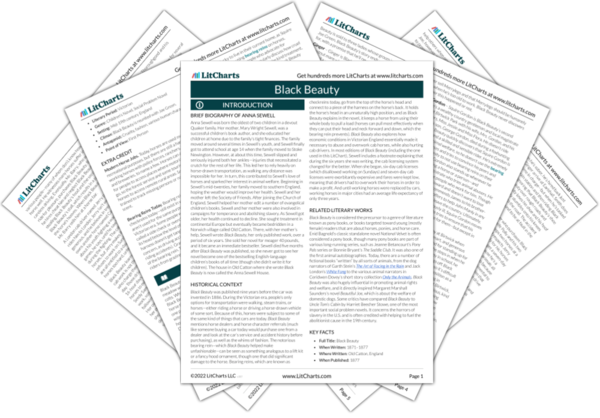The fact that Rob Roy is euthanized indicates that he was injured so badly that there was no chance of him healing, something that highlights how dangerous foxhunting can be for horses. And though Duchess is clearly grieving for Rob Roy, noting that nobody knows what happens to Rob Roy’s body suggests that horses aren’t given the same degree of respect as people are when they die. Finally, noting that Rob Roy, another horse, and a man died for “one little hare” suggests that their deaths were silly—and could’ve been easily prevented.
